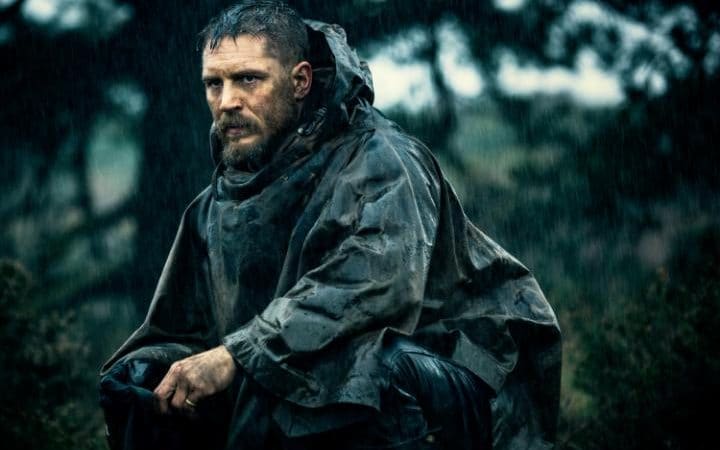TV Review: Taboo
 Wednesday, January 11, 2017 at 10:30AM
Wednesday, January 11, 2017 at 10:30AM by David Upton

Tom Hardy gets a mythical movie star introduction as Taboo opens, hidden alternately by camera and cloak before he pulls back his hood and the camera creeps reverently below him. The FX and BBC collaboration is a real passion project for the British actor, co-created with Peaky Blinders creator Steven Knight and Hardy’s father Edward ‘Chips’ Hardy...
Set in the early 1800s, amidst British conflicts with both France and the USA, Taboo emanates its salacious intentions from the title alone, and not only does this opening episode vibrate with suggestions of incest and allusions to graverobbing, but Hardy’s character is haunted by dreams or visions of what seems to be a deeply stereotypical, antiquated view of Africa as an alien place of tribalism and witchcraft - albeit one that has apparently redeemed a man from the corruption of Western society. Hopefully this back story will be given more voice than the silent, nude black man who appears in a hazy dream.
Like many a Hardy role, James Delaney is a singular man, causing panic amongst London society when he returns, having been presumed long dead in Africa. Even in this distant, murkier time period, Hardy’s physicality sets him far apart from his foppish fellow man; he walks heavily, his long black overcoat wide and stiff around him, his hair short and ragged. As ever, his performative masculinity is radiant, magnetic, much as viewers may rightly complain once again of his mumbling speech. (Sadly, we don't see the origins of the promo shot of Hardy in nothing more than a makeshift thong, for those invested in such things.)

Yet his gruffness seems almost parodic, matching the excessively murky surroundings and lurid cinematography - it’s all of apiece with the overripe gothic gloom of the whole enterprise. Perhaps of most note (for me, anyway) is the unexpected presence of Franka Potente, looked ragged as all hell in a brief appearance as a withered, garish brothel owner, her sly snarl trying and failing to incite some sort of fire in Hardy’s reticence.
Hardy has a bit of fun with some particularly absurd lines of dialogue - his first words, to a corpse, are “Forgive me, father… for I have indeed sinned.”(!) - but seems generally too convinced of the project’s dark earnestness to make the whole thing consistently enjoyable. You need more than a frisson of incest and a racially-charged vision to make such a penny dreadful knock-off live up to the name Taboo.
 Franka Potente,
Franka Potente,  Reviews,
Reviews,  Steven Knight,
Steven Knight,  TV,
TV,  Taboo,
Taboo,  Tom Hardy
Tom Hardy 


Reader Comments (1)
Dave - is the 'indeed' in fact 'in deed'? ie as opposed to "in thought". In terms of sin the church distinguished between thinking about doing something wrong and actually doing it when coming up with penitence.